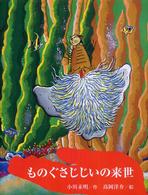- ホーム
- > 洋書
- > 英文書
- > Psychology
基本説明
This book focuses on the psychology of literature from an empirical point of view, rather than the more typical psychoanalytic position, and concentrates on literary content rather than readers or writers. The book centers on the author's quantitative studies of brief literary and quasi-literary forms, ranging from titles of short stories and names of literary characters to clichés and quotations from literary sources, in demonstrating their contribution to the topics of learning, perception, thinking, emotions, creativity, and especially person perception and aging.
Full Description
Psyche and the Literary Muses focuses on the psychology of literature from an empirical point of view, rather than the more typical psychoanalytic position, and concentrates on literary content rather than readers or writers. The book centers on the author's quantitative studies of brief literary and quasi-literary forms, ranging from titles of short stories and names of literary characters to clichés and quotations from literary sources, in demonstrating their contribution to the topics of learning, perception, thinking, emotions, creativity, and especially person perception and aging. More broadly, Psyche bears on literary studies, art, and psychology in general, as well as interdisciplinarity. This book deepens the understanding and appreciation of literature for scholars, academics and the general reader.
Contents
1. List of tables; 2. Preface; 3. Part 1. Introduction; 4. 1. An orientation; 5. 2. Similarities and differences across the psychology of art; 6. 3. Competing psychological approaches to the arts: Clinical and scientific; 7. 4. The status of the scientific psychology of art; 8. Part 2. The psychology of literature: An overview; 9. 5. The psychology of literature: Comparisons with other psychologies of art; 10. 6. A scientific psychology of literary content: Obstacles and steps towards a solution; 11. Part 3. The psychological relevance of brief literary forms; 12. 7. Poetry, autobiographies, and titles: Their contribution to cognition, creativity, and physiognomic perception; 13. 8. Literary names, indices, and cliches: Their contribution to physiognomic perception, -emotions, and thinking; 14. 9. Quotations: Their psychological usefulness; 15. Part 4. The psychological content of quotations: Person perception and attitudes to aging; 16. 10. Person perception and the psychological -attributes of the body; 17. 11. A study of quotations on the psychological -implications of the body; 18. 12. Prologue: Aging and the arts; 19. 13. Aging's memorable lines: A study of quotations about growing old; 20. 14. The preoccupations of aging: The subject matter of quotations; 21. 15. Evaluations of aging in quotations; 22. Part 5. Conclusion; 23. 16. Implications of a content-oriented psychology of literature; 24. Notes; 25. References cited; 26. Index







